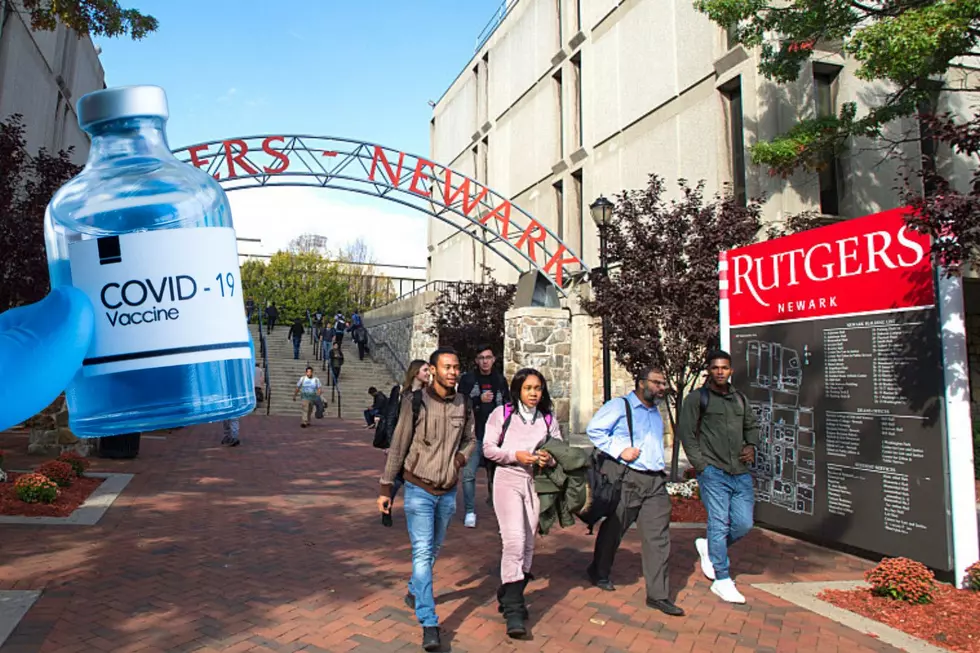
As school returns in NJ, so do the dangers of bullying
Incidents of bullying decreased in New Jersey public schools during the 2014-2015 academic year, according to the most recent figures compiled by the state Department of Education.
But for parents of children who have been picked on, one expert points out, statistics don't matter.
"You want it to stop," said Dr. Maurice J. Elias, a psychology professor at Rutgers University. "Bullying is still a serious issue if it's taking place in any school, so the numbers on bullying can go down, but until they hit zero, we still have an issue."
The fact that there are fewer bullying incidents is good and reflects the fact that more schools are aware of the problem and are making more effort to do something about it, Elias said.
"But, by no means should we feel that we've solved this problem," he said.
Use of social media can compound the situation, but, Elias said. bullying is a personal issue — in which somebody harasses and intimidates, takes advantage and puts down someone else.
"Social media doesn't give someone the urge to bully somebody else. It's just an outlet. So, the fact that there are a lot of outlets is one thing, but the bottom line is that what we have to be concerned about is making kids not want to do this," Elias said. "It's making kids understand the pain that they cause other people, making kids understand that it's just flat out wrong to take advantage of others because they might be different, or weaker or powerless, or you're uncomfortable with them."
Despite stories nationwide, including here in New Jersey, of young people taking their own lives, daily incidents of bullying continue.
"The most important things that we can do is make sure that all of our schools have a very positive, accepting culture and climate," Elias said. "We know that very often kids who bully other kids are kids that don't feel connected to their school. They don't feel connected in positive ways to other peers or to adults."
When kids come into a school, Elias said, they should feel supported, valued and accepted — like the school wants them to be there.
"When that happens, you end up seeing much, much less bullying. It's not as if most bullies are lifelong bullies. There are bullies in certain situations. They're not bullies every single place they go," Elias said.
Elias believes making schools safe, caring, welcoming and inspiring places for all kids can help prevent bullying.
"Then we would see a tremendous amount less bullying," he said.
Kids that continue to bully are are likely dealing with family and personal difficulties, he said, "that have to be addressed by something more than just a bully prevention program or bullying pledge, or an assembly."
The most important thing a child who is being bullied can do is to tell a responsible adult, advised Elias.
Elias also said that when there is a lot of stress or tension in school, kids won't go to counselors or teachers.
"The teachers are too stressed and hassled to follow up on the kid's request to give them help, but in schools that are really focused on the child ... they know how to handle them," Elias said.
Every school in New Jersey has an anti-bullying specialist, a school safety team, and a district-wide anti-bullying coordinator.
In instances of alleged bullying when the parents of a child are told, "It's just kids being kids," Elias stresses, "It's not acceptable, it's malpractice, so adults have to take these issues very seriously."
He said it can actually make the academic situation in schools much more challenging than it has to be for the victims.
Parents of children who repeatedly get bullied and are frustrated over the manner in which the school or district is handling the situation have an obligation to take action until they get satisfied, according to Elias.
He said "if you're not getting satisfaction from a teacher, you go to a counselor. If you're not getting satisfaction from a counselor, go to the principal. If you're not getting satisfaction from the principal, you go to the assistant superintendent who supervises the principal, and then to the superintendent, and then to the school board, and then to the school board attorney. And if that doesn't work out, you go to the county superintendent of schools."
Elias said eventually, they'll usually get satisfaction.
"The issue is so salient to so many people that they know it just can't be brushed off the table. That's one of the benefits of our law, is that eventually people are going to be held accountable," Elias said.
Bullying also very often is considered to be a civil rights issue, according to Elias.
New Jersey's anti-bullying law includes harassment, intimidation and bullying.
"That's extremely important, because psychological effects of non-physical forms of bullying can be absolutely as devastating as physical forms of bullying," Elias said..
When all else fails, Elias suggested, parents should hire attorneys or seek outside help from non-profit agencies.
"Not everybody can afford a lawyer, and going to an organization like Advocates for Children of New Jersey or even the New Jersey Law Center are places where parents without means can sometimes find they can get support and help," he said.
Although statistics show the number of bullying incidents have gone down in New Jersey, it does not mean the problem is being solved, reiterated Elias.
"It's not uncommon for people to think that way, and sometimes even the state thinks that way — that we're making progress, so now we can go worry about something else. But in reality, if we're moving in the right direction, we should be doing more of what we're doing, not just somehow stop what we're doing, because it's not going to naturally continue to progress, if we don't pay very close attention to it," said Elias.
More from New Jersey 101.5:
More From Beach Radio










